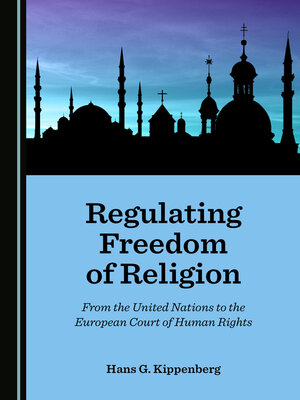Regulating Freedom of Religion: From the United Nations to the European Court of Human Rights
ebook
By Hans G. Kippenberg

Sign up to save your library
With an OverDrive account, you can save your favorite libraries for at-a-glance information about availability. Find out more about OverDrive accounts.
Find this title in Libby, the library reading app by OverDrive.



Search for a digital library with this title
Title found at these libraries:
| Library Name | Distance |
|---|---|
| Loading... |
Freedom of Religion—declared in Art. 18 of the Universal Declaration of Human Rights (1948)—concerned not only individuals, but included the moral right of religious communities to manifest religion in public. The International Covenant on Political and Civil Rights (1966/1976) made it a legal right and added an article that allowed states to restrict that freedom, provided it violates national laws and public order. This article resulted in an ongoing process of legal proceedings. The Human Rights Committee of the UN and the European Court of Human Rights have made judgments that allowed a plurality of religions in public, even in cases where there is a state religion. A declaration of the UN against intolerance and discrimination empowered religious communities to establish charitable institutions, to disseminate internationally relevant publications, and to receive financial contributions, and made them powerful social and political actors. The same declaration defended the principles of free choice of a religion and of tolerance among citizens of different faiths.
This book investigates the most relevant rulings concerning the religious rights of individuals and communities. It fills a gap in the study of religious communities in the globalized world, and will be of interest to anyone involved in historical, social, legal, and religious studies. It will help the reader to understand the paradox of the power of religious communities in a secular and globalizing world.







